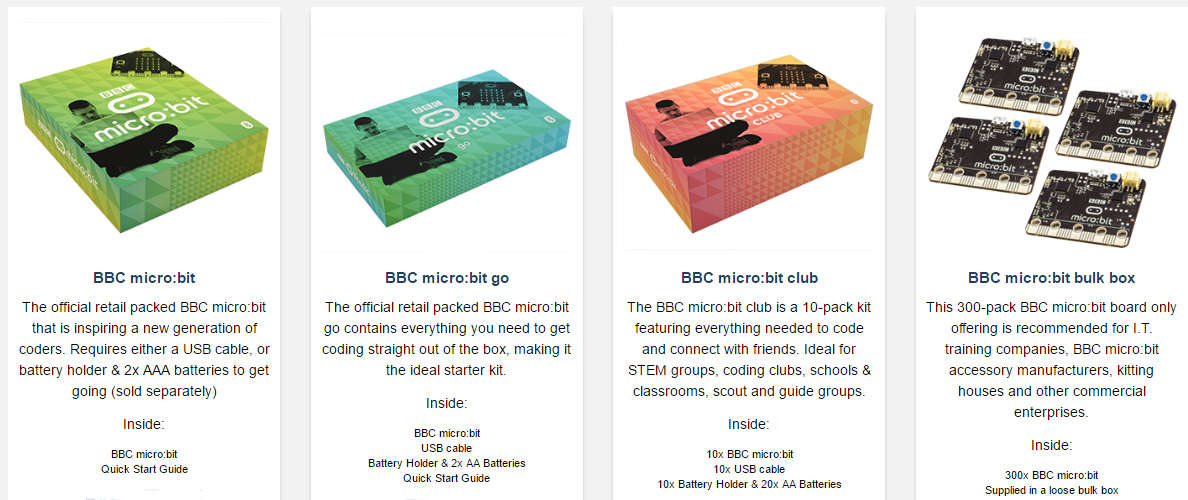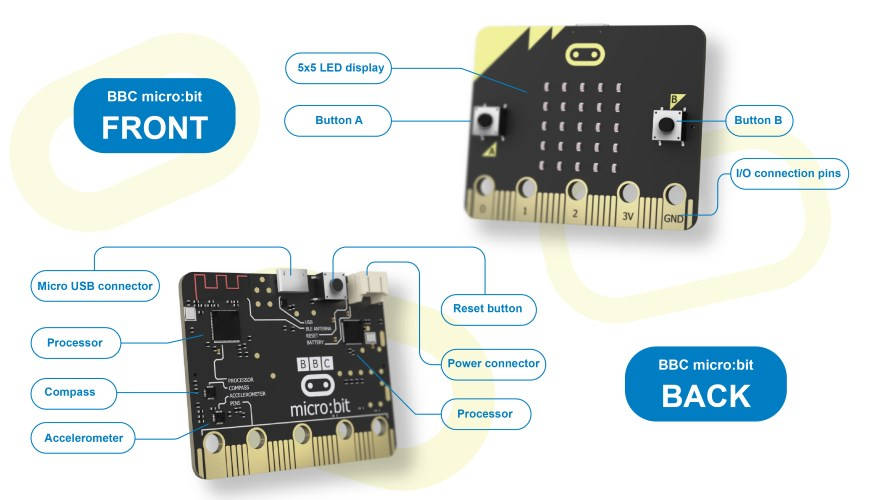| BBC micro:bit PreOrders Open |
| Written by Harry Fairhead | |||
| Tuesday, 31 May 2016 | |||
|
You can now place your orders for the micro:bit and expect to receive the device in late June or early July. It is more expensive than a Pi Zero, but it has a lot more onboard. The success of the micro:bit in education has been difficult to assess. There are certainly some enthusiastic proponents out there, but there isn't the "big noise" that you might expect from the dropping of one million devices on a supposedly eager audience.
The big problem is that the BBC branded website dedicated to the micro:bit operates as a closed community of teachers and pupils, making it impossible for an outsider to get involved. This is understandable from the security point of view, but very regrettable. It means that there isn't a community of makers to put ideas into the project as there is for the Raspberry Pi. In fact, you can say that the big advantage that the Pi has over just about any alternative is its community. When the micro:bit becomes publicly available in about a month what will be crucial is the rapid establishment of a wider community. At the moment the only move towards this is the proposed Stack Exchange micro:bit group - which still needs 10 more questions with 10 points to get to the next stage, so go and support it.
The good news is that the price is approximately $20 (£13.80) for the retail pack making it affordable. For clubs there's a pack of 10 that reduces the cost and also bulk deals for buying in quantity. It is pricer than the Pi Zero at $5, but this isn't a fair comparison. The Pi Zero doesn't come with any sensors or wireless connection while the micro:bit is packed with features - a 5x5 LED display, accelerometer, magnetometer, Bluetooth and two buttons - which let you start doing things with it as soon as you take it out of its box. The micro:bit also doesn't run Linux - it is an mbed device with a completely different way of using it. Not having Linux is a plus point if you are interested in programming IoT applications because nothing gets between you and the hardware. It is a negative point if you want to use it as a mini-server - which is where the Pi has the edge. The point is that the Pi Zero and micro:bit only compete in a small overlap area of application.
The micro:bit has many interesting features that open up opportunities for which the Pi Zero would be much less suitable. For example, its low-power Bluetooth means you can connect to a smartphone and develop apps that work with the micro:bit as clients. The onboard radio can also be used in a more primitive mode, allowing multiple micro:bits to communicate in ad-hoc networks. You can even use one micro:bit as a radio controller and another as a slave. As for using the device as a general purpose IoT device, its only real problem is the choice of a clunky edge connector to break out its signals to the outside world. At the moment edge connectors are difficult to obtain and very bulky. Let's hope that someone finds another way to make lots of connections easily. Should you buy one? Yes of course! The micro:bit is a fun device and, even if you haven't got an IoT application in mind, education is far too important to be left only to the teachers. Buy one and innovate - then educate by letting everyone know what you have done. ARM CEO Simon Segars puts it well: "ARM became one of the first BBC micro:bit partners as we instantly recognized its potential to excite children about coding. The micro:bit has the potential to transform public interest in computing in the same way the original ARM-based BBC Micro did. We want it to reach the broadest possible audience and making it commercially available will enable its influence to spread.” Now all we need is a community. More InformationFor bulk quantities: Related ArticlesThe BBC Micro:bit Which Language? Commando Jump Game For The Micro:bit In Python Commando Jump Game For The Micro:bit In JavaScript Micro:bit Commando Jump In The Microsoft Block Editor Commando Jump Game For The Micro:bit In Touch Develop The BBC Micro:bit Is An Mbed Device In C/C++ Getting Started With C/C++ On The Micro:bit Offline C/C++ Development With The Micro:bit BBC Micro:Bit Finally Ships to 1 Million For Free BBC micro:bit Your Next Computer? BBC Giving Away 1 Million Microcomputers Microsoft Open Sources TouchDevelop
To be informed about new articles on I Programmer, sign up for our weekly newsletter, subscribe to the RSS feed and follow us on, Twitter, Facebook, Google+ or Linkedin.
Comments
or email your comment to: comments@i-programmer.info
|
|||
| Last Updated ( Tuesday, 31 May 2016 ) |





